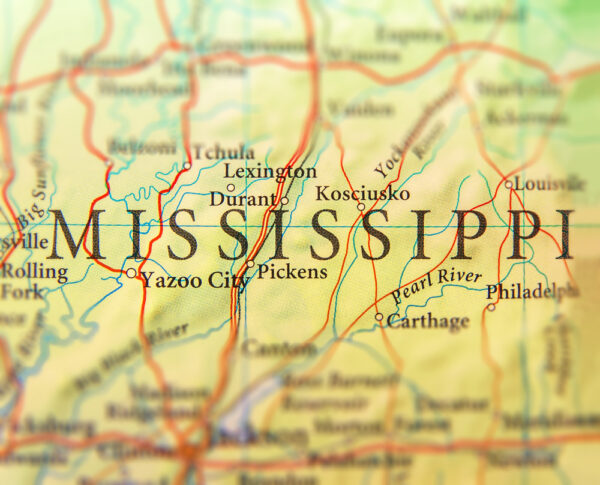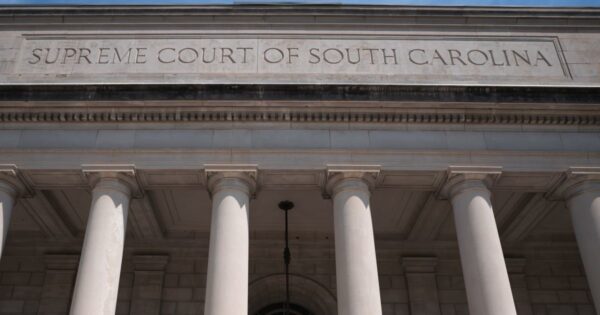Supreme Court Term 2024-2025
Weāre breaking down the cases we've asked the court to consider this term.
Latest Case Updates
Ongoing
Updated July 29, 2025
Closed (Judgment)
Updated July 25, 2025
Closed (Judgment)
Updated July 24, 2025
Closed (Judgment)
Updated July 21, 2025
Featured
Mississippi
Aug 2025

Voting Rights
White v. Mississippi State Board of Elections
District lines used to elect Mississippiās Supreme Court have gone unchanged for more than 35 years. Weāre suing because this dilutes the voting strength of Black residents in state Supreme Court elections, in violation of the Voting Rights Act and the U.S. Constitution.
Louisiana
Aug 2025

Voting Rights
Nairne v. Landry
Nairne v. Landry poses a challenge under Section 2 of the Voting Rights Act of 1965 to Louisianaās House and Senate legislative maps on behalf of plaintiff Black voters and Black voters across the state.
Washington, D.C.
Aug 2025

Voting Rights
League of Women Voters Education Fund v. Trump
On March 25, 2025, in a sweeping and unprecedented Executive Order, President Trump attempted to usurp the power to regulate federal elections from Congress and the States. Among other things, the Executive Order directs the Election Assistance Commissionāan agency that Congress specifically established to be bipartisan and independentāto require voters to show a passport or other citizenship documentation in order to register to vote in federal elections. If implemented, the Executive Order would threaten the ability of millions of eligible Americans to register and vote and upend the administration of federal elections.
On behalf of leading voter registration organizations and advocacy organizations, the ³Ō¹ĻÖ±²„ and co-counsel filed a lawsuit to block the Executive Order as an unconstitutional power grab.
U.S. Supreme Court
Aug 2025

Voting Rights
Callais v. Landry
Whether the congressional map Louisiana adopted to cure a Voting Rights Act violation in Robinson v. Ardoin is itself unlawful as a gerrymander.
Ohio
Jul 2025

Reproductive Freedom
Planned Parenthood Southwest Ohio Region et al., v. Ohio Department of Health, et al.
The ³Ō¹ĻÖ±²„, the ³Ō¹ĻÖ±²„ of Ohio, Planned Parenthood Federation of America, the law firm WilmerHale, and Fanon Rucker of the Cochran Law Firm, on behalf of Planned Parenthood Southwest Ohio Region, Planned Parenthood of Greater Ohio, Preterm-Cleveland, Womenās Med Group Professional Corporation, Dr. Sharon Liner, and Julia Quinn, MSN, BSN, amended a complaint in an existing lawsuit against a ban on telehealth medication abortion services to bring new claims under the Ohio Reproductive Freedom Amendment, including additional challenges to other laws in Ohio that restrict access to medication abortion in the state.
Georgia Supreme Court
Jun 2025

Voting Rights
Eternal Vigilance Action, Inc. v. Georgia
The ³Ō¹ĻÖ±²„ and partner organizations intervened in this case to represent the rights of voters and voting-rights organizations in a case challenging a number of rules passed by the Georgia State Election Board. We challenged the rule requiring that the number of votes cast be hand counted at the polling place prior to the tabulation of votes. In a critical victory for Georgia voters, in June 2025, the Georgia Supreme Court upheld a lower courtās decision permanently blocking the rule requiring hand counting of ballots at polling places before tabulation ā a process widely criticized for risking delays, ballot spoliation, and voter disenfranchisement.
U.S. Supreme Court
May 2025

Voting Rights
Racial Justice
Allen v. Milligan
Whether Alabamaās congressional districts violate Section 2 of the Voting Rights Act because they discriminate against Black voters. We succeeded in winning a new map for 2024 elections which, for the first time, has two congressional district that provide Black voters a fair opportunity to elect candidates of their choosing despite multiple attempts by Alabama to stop us at the Supreme Court. Despite this win, Alabama is still defending its discriminatory map, and a trial was held in February 2025 to determine the map for the rest of the decade.
In May 2025, a federal court ruled that Alabama's 2023 congressional map both violates Section 2 of the Voting Rights Act and was enacted by the Alabama Legislature with racially discriminatory intent.
South Carolina Supreme Court
Jan 2025

Voting Rights
League of Women Voters of South Carolina v. Alexander
This case involves a state constitutional challenge to South Carolinaās 2022 congressional redistricting plan, which legislators admit was drawn to entrench a 6-1 Republican majority in the stateās federal delegation. Plaintiff the League of Women Voters of South Carolina has asked the stateās Supreme Court to conclude that the congressional map is an unlawful partisan gerrymander that violates the state constitution.
U.S. Supreme Court
Apr 2024

Reproductive Freedom
Idaho and Moyle, et al. v. United States
Idaho and Moyle, et al. v. United States was appealed to the U.S. Supreme Court by Idaho politicians seeking to disregard a federal statute ā the Emergency Medical Treatment and Labor Act (EMTALA) ā and put doctors in jail for providing pregnant patients necessary emergency medical care. The Supreme Court heard oral arguments on this case on April 24, 2024. The Courtās ultimate decision will impact access to this essential care across the country.
All Cases
1,603 Court Cases

New York
Mar 2025
Free Speech
Immigrants' Rights
Khalil v. Trump
Whether a legal permanent resident of the U.S. can be arrested and detained on the basis of their political speech and advocacy.
Explore case
New York
Mar 2025

Free Speech
Immigrants' Rights
Khalil v. Trump
Whether a legal permanent resident of the U.S. can be arrested and detained on the basis of their political speech and advocacy.

Texas
Mar 2025
LGBTQ Rights
Loe v. Texas
In the spring of 2023, Texas became the largest state in the country to ban gender-affirming care for transgender youth after Governor Greg Abbott signed SB 14. In July 2023, a lawsuit was filed on behalf of five Texas families, three medical professionals, and two organizations representing hundreds of families and health professionals across the state. The five Texas families challenging this law come from diverse backgrounds across the state with transgender children and teenagers. The billās passage alone resulted in families splitting up or planning to leave Texas to continue treatment for their children. The families are suing pseudonymously to protect themselves and their children, who are transgender Texans between the ages of 9 and 16.
Explore case
Texas
Mar 2025

LGBTQ Rights
Loe v. Texas
In the spring of 2023, Texas became the largest state in the country to ban gender-affirming care for transgender youth after Governor Greg Abbott signed SB 14. In July 2023, a lawsuit was filed on behalf of five Texas families, three medical professionals, and two organizations representing hundreds of families and health professionals across the state. The five Texas families challenging this law come from diverse backgrounds across the state with transgender children and teenagers. The billās passage alone resulted in families splitting up or planning to leave Texas to continue treatment for their children. The families are suing pseudonymously to protect themselves and their children, who are transgender Texans between the ages of 9 and 16.

Rhode Island
Mar 2025
Free Speech
Rhode Island Latino Arts v. National Endowment for the Arts
On March 6, 2025, the ³Ō¹ĻÖ±²„; the ³Ō¹ĻÖ±²„ of Rhode Island; Lynette Labinger, cooperating attorney for the ³Ō¹ĻÖ±²„ of Rhode Island; and David Cole filed a federal lawsuit against the National Endowment for the Arts (NEA), challenging a new requirement that all grant applicants certify that āfederal funds shall not be used to promote gender ideology,ā pursuant to President Trumpās Executive Order 14168, and a related prohibition on funding any projects that appear to āpromoteā such messages.
Explore case
Rhode Island
Mar 2025

Free Speech
Rhode Island Latino Arts v. National Endowment for the Arts
On March 6, 2025, the ³Ō¹ĻÖ±²„; the ³Ō¹ĻÖ±²„ of Rhode Island; Lynette Labinger, cooperating attorney for the ³Ō¹ĻÖ±²„ of Rhode Island; and David Cole filed a federal lawsuit against the National Endowment for the Arts (NEA), challenging a new requirement that all grant applicants certify that āfederal funds shall not be used to promote gender ideology,ā pursuant to President Trumpās Executive Order 14168, and a related prohibition on funding any projects that appear to āpromoteā such messages.

New Hampshire
Mar 2025
Racial Justice
National Education Association et al. v. US Department of Education et al
The National Education Association, the National Education Association-New Hampshire, and the Center for Black Educator Development filed a challenge in federal court against the U.S. Department of Educationās Feb. 14, 2025 āDear Colleague Letter,ā which announced that ED will treat diversity, equity and inclusion (DEI) efforts as unlawful and threatens to move swiftly to cut schoolsā federal funding. EDās actions violate due process and the First Amendment, as well as basic requirements for agency action.
Explore case
New Hampshire
Mar 2025

Racial Justice
National Education Association et al. v. US Department of Education et al
The National Education Association, the National Education Association-New Hampshire, and the Center for Black Educator Development filed a challenge in federal court against the U.S. Department of Educationās Feb. 14, 2025 āDear Colleague Letter,ā which announced that ED will treat diversity, equity and inclusion (DEI) efforts as unlawful and threatens to move swiftly to cut schoolsā federal funding. EDās actions violate due process and the First Amendment, as well as basic requirements for agency action.

North Carolina
Mar 2025
Voting Rights
Griffin v. North Carolina Board of Elections (Amicus)
This case arises from the November 2024 election for state supreme court justice in North Carolina. Incumbent State Supreme Court Justice Allison Riggs defeated Court of Appeals Judge Jefferson Griffin, but Griffin has filed a petition seeking to invalidate more than 65,000 votes from the election. He argues that the state Board of Elections impermissibly allowed 60,000 people to register without providing their driverās licenses or social security numbers, and that the Board impermissibly allowed 5,500 overseas voters to cast absentee ballots without photo identification. The petition has resulted in both federal and state litigation, and the ³Ō¹ĻÖ±²„ has submitted amicus briefs in both venues. In the U.S. Court of Appeals for the Fourth Circuit, the ³Ō¹ĻÖ±²„ās Voting Rights Project and the ³Ō¹ĻÖ±²„ of North Carolina filed an amicus brief explaining that the petitionās attempt to cancel tens of thousands of votes threatens democratic backsliding in North Carolina. Separately, in the North Carolina Court of Appeals, the ³Ō¹ĻÖ±²„ās State Supreme Court Initiative and the ³Ō¹ĻÖ±²„ of North Carolina submitted an amicus brief explaining that, even if the Board did make mistakes, cancelling votes as a consequence of those mistakes would violate the popular sovereignty provision of the North Carolina Constitution because voters relied on the Board to know how to register and vote.
Explore case
North Carolina
Mar 2025

Voting Rights
Griffin v. North Carolina Board of Elections (Amicus)
This case arises from the November 2024 election for state supreme court justice in North Carolina. Incumbent State Supreme Court Justice Allison Riggs defeated Court of Appeals Judge Jefferson Griffin, but Griffin has filed a petition seeking to invalidate more than 65,000 votes from the election. He argues that the state Board of Elections impermissibly allowed 60,000 people to register without providing their driverās licenses or social security numbers, and that the Board impermissibly allowed 5,500 overseas voters to cast absentee ballots without photo identification. The petition has resulted in both federal and state litigation, and the ³Ō¹ĻÖ±²„ has submitted amicus briefs in both venues. In the U.S. Court of Appeals for the Fourth Circuit, the ³Ō¹ĻÖ±²„ās Voting Rights Project and the ³Ō¹ĻÖ±²„ of North Carolina filed an amicus brief explaining that the petitionās attempt to cancel tens of thousands of votes threatens democratic backsliding in North Carolina. Separately, in the North Carolina Court of Appeals, the ³Ō¹ĻÖ±²„ās State Supreme Court Initiative and the ³Ō¹ĻÖ±²„ of North Carolina submitted an amicus brief explaining that, even if the Board did make mistakes, cancelling votes as a consequence of those mistakes would violate the popular sovereignty provision of the North Carolina Constitution because voters relied on the Board to know how to register and vote.
